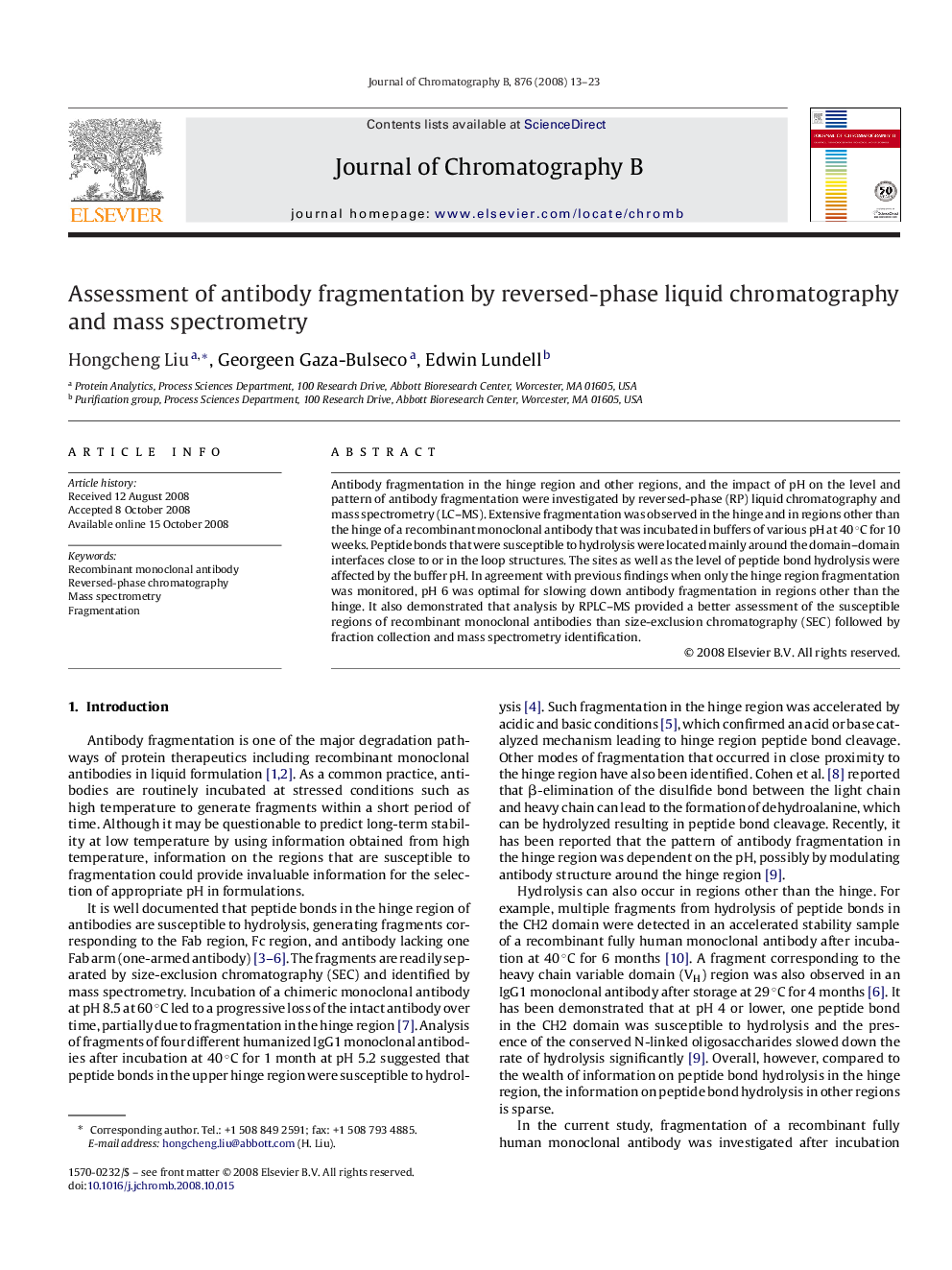| Article ID | Journal | Published Year | Pages | File Type |
|---|---|---|---|---|
| 1215019 | Journal of Chromatography B | 2008 | 11 Pages |
Antibody fragmentation in the hinge region and other regions, and the impact of pH on the level and pattern of antibody fragmentation were investigated by reversed-phase (RP) liquid chromatography and mass spectrometry (LC–MS). Extensive fragmentation was observed in the hinge and in regions other than the hinge of a recombinant monoclonal antibody that was incubated in buffers of various pH at 40 °C for 10 weeks. Peptide bonds that were susceptible to hydrolysis were located mainly around the domain–domain interfaces close to or in the loop structures. The sites as well as the level of peptide bond hydrolysis were affected by the buffer pH. In agreement with previous findings when only the hinge region fragmentation was monitored, pH 6 was optimal for slowing down antibody fragmentation in regions other than the hinge. It also demonstrated that analysis by RPLC–MS provided a better assessment of the susceptible regions of recombinant monoclonal antibodies than size-exclusion chromatography (SEC) followed by fraction collection and mass spectrometry identification.
